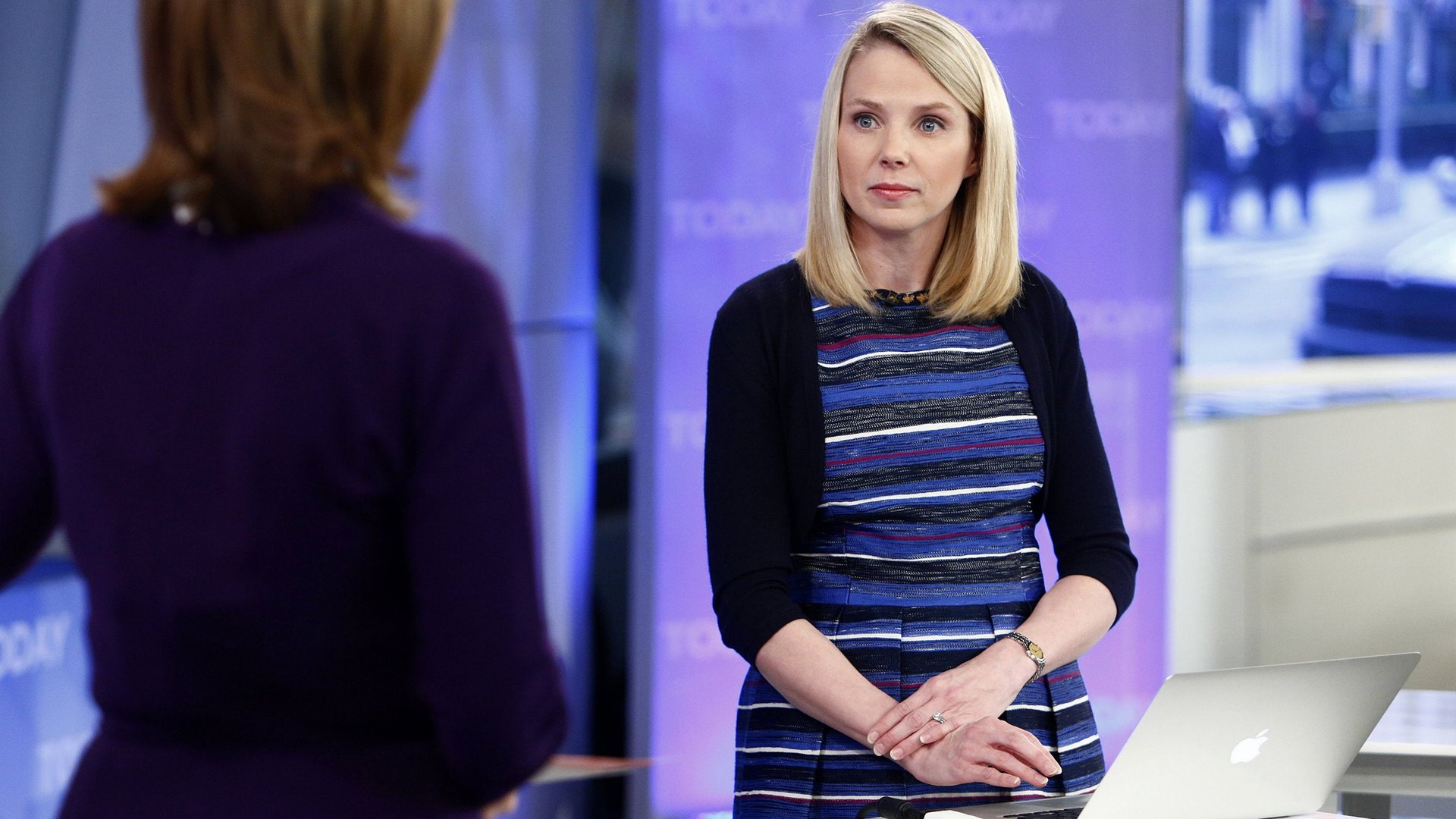Who cares if Marissa Mayer calls herself a feminist—as long as she supports the cause
Every time a prominent woman leader declares herself “not a feminist,” the blogosphere erupts with feminists who feel variously betrayed, outraged, disappointed, convinced that she must not understand the definition of feminism. While I empathize with all of these responses, I think the time has come for a rapprochement.


Every time a prominent woman leader declares herself “not a feminist,” the blogosphere erupts with feminists who feel variously betrayed, outraged, disappointed, convinced that she must not understand the definition of feminism. While I empathize with all of these responses, I think the time has come for a rapprochement.
What underlies a statement like Marissa Mayer’s recent disavowal-and-dodge maneuver? To quote her: “I don’t think that I would consider myself a feminist. [But] I certainly believe in equal rights.” But here’s what I hear her saying:
“I’m not radical.”
In other words: While she may be breaking down barriers, she’s not rocking the boat.
How utterly unsurprising, coming from the CEO of a publicly traded Fortune 500 company. No fear: She’s doing just fine at modeling a relatively new option for young geek girls, who will grow up knowing that twin passions for code and fashion can coexist in one wildly successful businesswoman, which is fabulous.
What’s less fair is Mayer’s characterization of feminists as having “militant drive and… [a] chip on the shoulder.” Time for somebody to send her a subscription to Bust and sign her up for the Jezebel mailing list because I get the distinct impression she could use an infusion of witty, positive feminist thinking.
“I don’t want to join your political movement.”
Given Mayer’s success, she very likely feels that women don’t face many barriers anymore, and that feminism as a project is ready to be shelved. She may also quite simply be individualistic, and not much for solidarity and movement-building in general.
While I wish more people understood that there’s plenty of room for multiple feminisms, I get that not everyone is inclined to work toward systematic change. That’s fair. What I have less time for is the implication that because some (mostly white, hyper-educated, and generally upper-class since birth) women are enjoying more success and freedom than ever before, feminism is therefore irrelevant.
There is so much still to do—not just in North America, but around the world—to ensure women’s equal rights and to dismantle our deep biases around gender writ large. (Yes, feminism is for men, too.) Former Secretary of State Madeleine Albright famously said, “There is a special place in hell for women who don’t help other women,” and I hope Mayer agrees. I frankly don’t care whether she calls herself a feminist or not, so long as she is willing to acknowledge that we have far to go before we sleep—and do her part to support other women.
“No one I know calls themselves a feminist.”
There is, quite simply, a generational thing going on here. It’s not news that most of us who had the luxury of being born in the late 1960s or later benefited enormously from feminism without ever attending a consciousness-raising group. And as a result, we tend to be a little ignorant of both what came before, and what feminism looks like now.
Marissa Mayer is hardly the first person to suggest that feminism has a branding problem. As Amanda Hess and Nona Willis Aronowitz discuss on Slate, the question “Are you a feminist?” is itself so problematic (not to mention divisive) that it’s about time we laid it to rest.
Fine, then: You’re not a feminist. But you do believe in equal rights, so let’s start there. Because it takes all kinds to make a revolution.
A profound, worldwide shift in our relationship to gender will not be the product of one philosophy, one approach, or one person—any more than we can reverse climate change by passing a single law. There’s room for a whole range of people, with a whole range of strategies and theories of change. Just as it doesn’t really matter whether you consider yourself an environmentalist, if you’re working toward saving the planet—it doesn’t matter whether you call yourself a feminist or not, so long as you’re moving things forward on the gender front. And Marissa Mayer is definitely doing that, just by going to work every day.